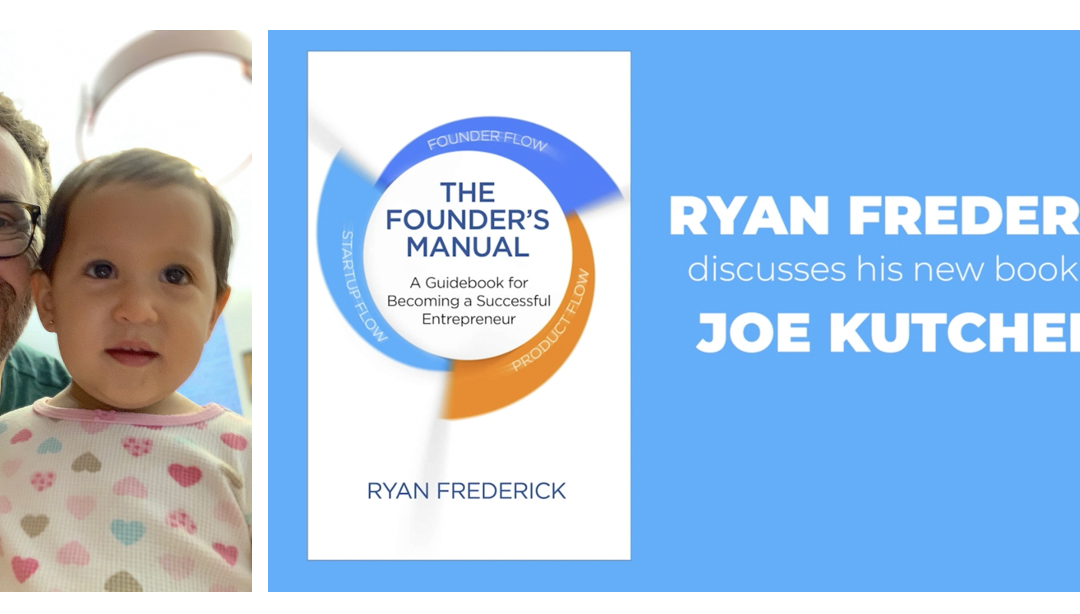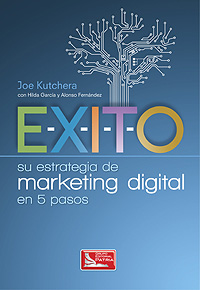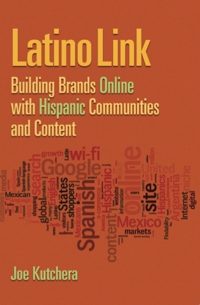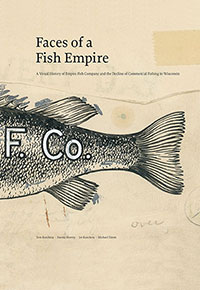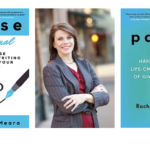How have you been spending your time at home during the Coronavirus? I have been reading books to our two little daughters and blowing lots of bubbles too. I have also made more time to read and write for myself.
I just finished reading a terrific new book, The Founder’s Manual: A Guidebook for Becoming a Successful Entrepreneur, by Ryan Frederick. I found it to be an excellent resource for startups, entrepreneurs, and anyone who develops or markets new products.
Check out my previous post, a review of The Founder’s Manual, HERE.
I have worked at a number of startups – both large and small – and started my own marketing consulting company, Latino Link Advisors, where I have worked with a number of entrepreneurial clients. I also grew up in a family business, Empire Fish, as a fourth-generation fish monger. So, I’ve been interested in entrepreneurship for many years. I found Ryan’s book so relevant because he concisely explains what is required of founders/entrepreneurs to build products that solve a specific problem for clients. And then he outlines how to build a company culture around that.
Watch Ryan Frederick and I discuss his book in this video interview:
And here’s a transcription of our conversation, which has been edited for length and clarity:
Joe Kutchera: How do you define entrepreneurship? And what does it mean to be an entrepreneur and a founder?
Ryan Frederick: Being an entrepreneur is really being a problem solver. The problems shift and change as you validate that you’re working on something that is worth the time and energy to work on, and then evolve into operationalizing a company. As you begin to commercialize a company with some success, then there is another set of challenges and problems. Of course, the root of building a company is solving a problem that customers value. I look at being an entrepreneur as problem solving on an ongoing basis and with it, the problems are moving and changing. It’s really just an endless trajectory of problem solving.
Joe: Your book features three parts: Founder Flow, Startup Flow and Product Flow. Tell us about those three aspects of entrepreneurship and how they fit together.
Ryan: It was important for me to talk about all three of those because I think that they’re inseparable. If you’re going to be a founder, then you’re going to develop a product that presumably solves customers’ problems. Then a startup is the commercialization, if you will, of building that product and solving the problem in a way that customers care about.
Even though I wanted to mostly talk about the journey of being a founder, I felt it was important to bring in the product and the startup pieces into it. You can’t be a founder without having a product and a company that commercializes that product.
Joe: I noticed that the “founder flow” section represented about 50% of the book and then the product and startup flow represented the other half. What made you dedicate so much of the book to the “founder flow” section?
Ryan: Initially I expected the book to be more about product. Then as I started writing and thinking about it, the founder piece began to take over. In the early stages of building a product and a company, it is all about the founder, the founding team and their ability to deal with the challenges of building a product and a company. Being a founder is the most professionally challenging thing that anybody can do. I call it the Mount Everest of careers because you’re unprepared for almost all of it. You deal with a series of unknowns and unexpected events. I wanted to tell that founder piece and the humanity of it.
Every product in every startup is an absolute reflection of the team. If those people are committed and capable, the product and the company have a chance to be successful. If the team isn’t, then there’s probably very little chance of the product or company being successful.
Joe: In the introduction of your book, you mention the inspiration for your book comes from the book FLOW: The Psychology of Optimal Experience by the psychologist Mihaly Csikszentmihalyi. He defines “flow” as the feeling that athletes, writers and artists describe while immersed in doing their craft, when time seems to disappear. Tell us more about the concept of “flow” and how/why that inspired you to write your book.
Ryan: I became fascinated with flow almost 10 years ago now. I started to think about how flow relates to being a founder, starting a company and building a product. What attributes and principles are required for entrepreneurs to achieve a state of flow? The flow state, as most people describe it, is when an athlete describes feeling “in the zone.” That is when an athlete is performing at a high level really unconsciously. There are principles and attributes that get the athlete into that high-performance, unconscious zone.
Starting a company can be very overwhelming, intimidating and chaotic. But also, the highs can be very high. It’s a very emotional journey. As I started to understand “flow” better, I started to relate it to what I know, which is building products and starting companies. I then tried to build a connection between flow and those activities by identifying the principles and attributes of being a founder, building a product, and starting a company. If you know what those principles are, then you will have a better chance of performing at a higher level and increasing your odds of success. Most new products and companies don’t succeed, so anything to help increase the odds and to perform at a higher level by understanding the principles is worth the time to understand.
Joe: In chapter 11 and throughout your book, you highlight the importance of keeping your ego in check. Instead, you encourage entrepreneurs to focus on solving customers’ problems. Tell us more about that and how that relates to leadership.
Ryan: One of the real challenges of being a founder and building a product is that it’s a very egotistical endeavor. You have to believe that you are uniquely capable of building a successful company around solving a specific problem. Yet, as you execute doing it, you need to be incredibly humble because your ego is probably the biggest Achilles heel throughout the process. You have to be vulnerable enough to have conversations with customers about the problem and the way to solve it.
There’s a lot of vulnerability involved that is counterintuitive to most of the context around being a founder and starting a company. Most people think about successful founders as people that have all of the answers and had it all figured out. That couldn’t be further from the truth. The people that matter most are your customers that your company is going to serve.
Joe: In a chapter called “Get and Stay Close to Your Customers,” you say, “People and organizations need to switch from valuing what we know to learning.” Tell us more about that. Why is continual learning and evolution paramount to knowledge?
Ryan: If you think about company hierarchies and the way that professionals get promoted, it is around what we know. That’s how we are valued professionally, by proving: What have we done? What do we know? I guess that’s natural and acceptable because you don’t want to have brain surgery from someone who’s not accomplished in brain surgery.
But when you’re building a new product and company, what you know or what you think you know about the problem doesn’t really matter. What matters is: What do customers value? How do customers think that your product should work? This is one of the reasons that big companies find innovation challenging because companies are constructed around this hierarchy of experience and knowledge. That’s how teams are set up and people are reviewed. When you’re trying to do something innovative, it’s less about what you’re bringing to the process than it is about what you’re learning through the process.
This is one of the things that trips people up. People who are new to entrepreneurship come to it with a set of experiences and knowledge. They try to apply that and put themselves in the position of making decisions based upon what they know versus what they’re learning as they’re iterating and validating their product with customers.
Joe: What companies have you started? And what problems did those companies address?
Ryan: I’ve been fortunate to be part of starting several companies, all software companies, in very niche spaces. One of the companies sold a CRM for blood centers and their blood donors. It was not something that we had been contemplating.
The CRM for blood centers is an interesting story. I was working for a marketing services firm that had won an RFP to work with the largest independent blood center in the world. That blood center had become a problem child for us. We provided email, mail, and calling campaigns to recruit donors and to manage blood donations. The blood center client was never really satisfied with our marketing services firm. So, I ended up approaching them about their grievances. It turns out that we were sending them dozens of spreadsheets a day for the marketing campaigns. The blood center was drowning in data. They didn’t know what was working and what wasn’t. So, I saw an opportunity to build a software product that helped execute the campaigns more efficiently and effectively and shine a light on what was working. It was very specific to the blood center world. That customer ended up being our beta customer.
In one of the chapters in my book, I talk about how customer funding is the best type of funding. That blood center ended up being our first investor. They ended up funding the development of the product initially and then they got loyalty payments downstream. It worked well.
In another company, we built an online service targeted to the legal community. Then, we were at a conference and somebody came up to us and shared some feedback about how they would use our product. Based upon that feedback, we then redirected the company down a different path to provide pre-employment screening for companies that continually hire large volumes of people, mostly in retail. We then allowed retailers that were opening hundreds of stores in a year to process background checks and screen potential new employees through an interactive voice response system and then on the web. This was when most people were still doing background checks by running to the courthouses and DMVs. It was a very manual process. We automated it and took a lot of the manual parts out of it.
Joe: What do you do at your current company, AWH, and how are you helping your clients manage data and software solutions?
Ryan: AWH is a product and data consulting firm. We help clients build new digital products that run on the web, mobile and IOT. Our focus is on the problem and what’s the simplest, most elegant solution that can help a client and their customers to solve a problem. We try not to stray very far from the principles that I write about in the book from a founder, product and startup perspective. Whether you’re a Fortune 100 company, a mid-market nonprofit or company or a startup, the principles of building a successful product are the same. We help our clients approach building products in a manner that gives them the best chance to be successful.
As an example, we have a client, Clarigent Health, that is building an app to help prevent suicide. It records conversations between a patient and a doctor or a student and a counselor. We analyze the conversations and look for suicide ideation. Then, we provide advice to the facilitator of the conversation on what to do. It could be anything from don’t let the person out of your sight to call 911, to give them these exercises, or give them more information. So, that’s one that we feel really good about.
Joe: In the beginning of your book, you describe yourself as an “underestimated founder.” Tell us about that concept.
Ryan: Underestimated founders are an interesting group to me because I consider myself one. I grew up in a small town in upstate New York in a lower middle-class family. Fine childhood, fine upbringing. I just didn’t have access to a lot. My world was pretty small. And that’s how I classify underestimated founders. It’s often attached to socioeconomic status, but I think about it as the scope of someone’s world view. Underestimated founders’ worlds are often pretty small until they break out in some way.
When your world is really small, you develop skills that are critical to being successful as founders. One of those is that you become observant because your world is so small that you have the ability to digest and process things. When underestimated founders break out and realize that there is a bigger world for them to take on, they take on challenges in a way that people who have always had access to them don’t value as much.
Joe: You’ve been involved with two organizations that foster entrepreneurship and encourage technology skills, Startup Grind and i.c.stars. Tell us about those organizations and your involvement with them.
Ryan: Startup Grind is a global organization that works to educate, inspire, and connect entrepreneurs. We do that through monthly events in 600 or so cities around the globe. Startup Grind is really a manifestation of the founder. Derek Andersen started it as a support group in Silicon Valley for founders that were struggling and needed comradery and support. Over the last few years, it has really blown up into a global organization that focuses on helping founders get the inspiration and education that they need.
I.C.Stars is a nonprofit workforce development program that trains underemployed adults to become software developers and technologists. We take people from all sorts of backgrounds through a 16-week program to help them learn new skills. The average person comes in making $9 an hour and leaves making $24 an hour. Within 18 months they’re making $35 an hour. It’s probably been the most rewarding thing that I’ve ever been a part of. It’s been incredibly gratifying to see someone who didn’t have a lot of access get that access through the program. The world opens up to them and they realize that they have more potential than they thought they did. The definition of success is fulfilling your potential and i.c.stars is a program that helps people fulfill their potential.
The Founder’s Manual: A Guidebook for Becoming a Successful Entrepreneur is available on Amazon and at ParamountBooks.com.

